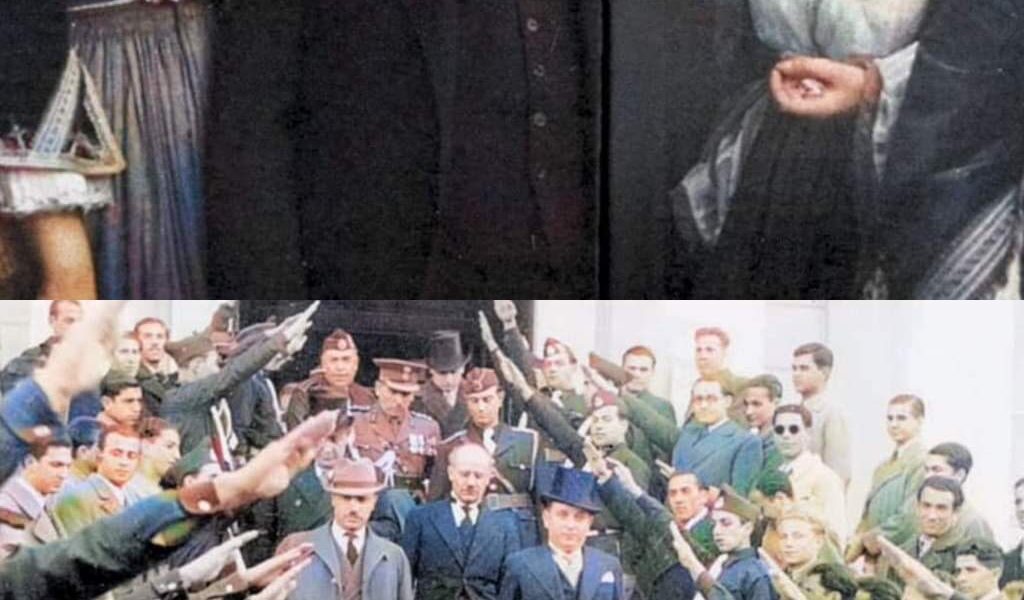The absolute brilliance of Ioannis Metaxas undoubtedly left its mark in Greek history when on October 28th, 1940, he refused to surrender the country to the Italian forces. With his strategic knowledge and bravery, Ioannis Metaxas seized power on August 4th, 1936 and led the country through a series of political and social changes into the second World War to defend the country, its people and its glorious history from the enemy.
Responsible for the Metaxas Line, one of the largest fortification complexes at the time, Metaxas led the country to a victorious battle against the Italian invasion on March 1941 and a strong defence against the German forces during the Battle of Greece in 1941, raising the country’s national morale and determination to succeed.
While in office, Metaxas was responsible for some of the most important and innovative restructurings of the state in every field from agriculture to education and culture. Most notably:
- Founded E.O.N., a non-political youth organization in attempt to imbue the youth with the ethnic ideas and values of Hellenism, which had been subjected to years of political propaganda.
- He established the Social Insurance Institute therefore implementing the 8-hour working schedule, the official days off-work and pension organization.
- He established hospitals and medical offices for the treatment of many diseases such as malaria, kindergartens, schools, organizations for the promotion of Greek culture (Ergatiki Hestia), food rationing for millions of children and unemployed people.
- Created airports in Thessaloniki and Crete, performed anti-flooding constructions, created aqueducts, roads, tunnels, pavements, erected schools, offices and other buildings.
- Built homes and districts for refugees.
- Established National Forests and hired guards for the protection of the wildlife and enforced the agriculture. By 1938, the cultivable acres of Greece had increased to 25.841.400 from 12.452.980 that was since 1922.
- Enforced the Greek culture by establishing organizations, institutions and cultural centres, most notably Stegi Grammaton kai Technon, organized theatrical presentations for the first time in ancient theatres, founded the national organization for publishing school books.
- Built 1739 new schools and hired 3288 teachers.
- Developed tourism in Greece and organized promotion of the country.
- Cancelled the Greek national debt.
- Implemented the Price Control Code, by which he could control the prices of all products in the country. This way there was a regulation in the profit between the merchant and the intermediary.
- Established protection and restoration of every archaeological artefact and monument in the country. It is interesting to note that during wartime, Metaxas ordered the protection of as much archaeological artefacts and monuments as possible by hiding them underground.
- Fought against communism, which had begun expressing anti-Hellenic ideologies.
- Fought against crime and drugs. He deployed units which uncovered drug dealing companies and confiscated huge amounts of imported drug substances. In just 5 years robberies had dropped from 82 to 13 and assassinations had dropped from 360 to 67.
- He organized, educated and armed the Greek Army so well that in 1940 everybody in Europe was amazed from its thriumphant victories in the mountains of Epirus to such an extent that the British Prime Minister Winston Churchill proclaimed “From now on, we will not say that Greeks fight like Heroes, but that Heroes fight like Greeks”.
As the greatest political and military figure in the history of modern Greece, he encompassed every ideal that ought to encompass a political leader, taking place in battles, organizing the country’s army and defences and reforming every single field of the country, always to the benefit of the peoples and country.
His act of refusing to surrender the country to the enemy, Metaxas’ OXI, is alone an act that characterizes a Great Greek.
Harold Nicolson, a member of the British government said about Metaxas: “John Metaxas, who assumed in 1936 the governance of his divided country, managed in just a few years to imbue it with determination and to make it strong and capable to confront, with the nation united behind him, the greatest challenge that Greece had ever faced in its course. We the British bow in respect before the memory of this great man…”

